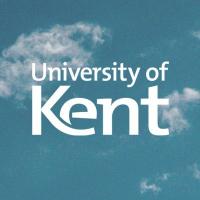Biomedicine - MSc
A flexible programme that allows you to pursue diverse interests at the interface of biology and clinical sciences.
Overview
Based around a core structure of practical training in cutting-edge molecular biosciences –including CRISPR-Cas9 genome editing technologies – the course provides an advanced training in the research and transferable skills that are valued by employers.
An impressive range of optional modules in diverse areas of biomedicine – infection, cancer, reproductive technology, neuroscience, ageing, bioinformatics, drug development and biotechnology – allow you to develop your own specific biomedical interests. An extended research project in the summer months allows advanced, independent investigation in an area that relates to your programme of study.
Biomedicine is a particular research strength at the University of Kent, and the curriculum has been designed by world-leading experts within their fields. Connections with the clinical community ensure that you have access to the interface between biological science and medicine, and a true insight into how biomedical research improves patient care and changes lives.
The programme offers a progression route to PhD level of study for those wishing to pursue a research career, while transferable skills development supports access to careers in clinical trials, public engagement, scientific writing, industrial research, and many other career structures within and outside the laboratory.
As a Biomedicine student you join a vibrant, ambitious and friendly academic community of around 150 postgraduate students, and a School ranked in the top 10 in the UK for research intensity by the Times Higher Education, based on data from the most recent Research Excellence Framework (REF).
Campus Information
Canterbury
Our campus is surrounded by beautiful woodlands and overlooks the charming city of Canterbury. We have excellent transport links on campus or you can stroll into town on foot.
Intakes
- Sep
Application Processing Time in Days: 30
Minimum English Language Requirements
| English Level Description | IELTS (1.0 -9.0) | TOEFL IBT (0-120) | TOEFL CBT (0-300) | PTE (10-90) | |
|---|---|---|---|---|---|
| Expert | 9 | 120 | 297-300 | 86-90 | |
| Very Good | 8.5 | 115-119 | 280-293 | 83-86 | |
| Very Good | 8 | 110-114 | 270-280 | 79-83 | |
| Good | 7.5 | 102-109 | 253-267 | 73-79 | |
| Good | 7 | 94-101 | 240-253 | 65-73 | |
| Competent | 6.5 | 79-93 | 213-233 | 58-65 | |
| Competent | 6 | 60-78 | 170-210 | 50-58 | |
| Modest | 5.5 | 46-59 | 133-210 | 43-50 | |
| Modest | 5 | 35-45 | 107-133 | 36-43 | |
| Limited | 4 | 32-34 | 97-103 | 30-36 | |
| Extremely Limited | < 4 | < 31 | < 93 | < 30 |
Job Opportunity Potential
In these appointments, you will have up to 45 minutes to talk to a careers adviser about whatever career-related topic is important to you. Topics of conversation could include:
- I have no idea what I want to do after I graduate, what are my options?
- What jobs can I get with my degree?
- How do my skills fit in the labour market?
- I’m interested in taking a gap year after I graduate and I want to plan something employers will value.
- I’m thinking of leaving/changing my course and want to talk through the pros and cons.
- I’m interested in doing a masters or PhD, what are my options?
- I’m not sure how to disclose sensitive information to an employer.
A guidance interview is:
Impartial
A careers adviser will not recommend one route to you over another. They are there to help you explore the options objectively.
Challenging
Careers advisers may question your goals and help you to look at the disadvantages as well as the advantages. This is not to put you off, but to help ensure you have thought it through.
Supportive
The meetings are very informal and relaxed. Careers advisers are there to help you discuss things in a safe environment.
Part of a process
Career choice is a process not an event. A guidance interview is a good starting point but you will need to do further research and continuously update your action plan.
PSW Opportunity
2 Years PSW is applicable after the course. (Bachelors & Masters only)
Admission Requirement / Eligibility Criteria
For entry to a Kent postgraduate degree programme (Master’s), Indian students typically need to have completed a three or four-year undergraduate degree (Honours Bachelor degree or Professional degree) at an accredited university or college. General Bachelor degrees may sometimes be considered. Exact requirements will depend on the postgraduate degree you are applying for and the institution you have studied at.
For programmes that require a 2:1 we usually ask for a First Class degree, a final CGPA of 6.0/10, or 60%. Students from top institutions may be considered with a high Second Class degree, a final CGPA of 5.5/10, or 55%.
For programmes that require a 2:2 we usually ask for a high Second Class degree, a final CGPA of 5.5/10, or 55%
Some, but not all, postgraduate programmes require your undergraduate degree to have a related major. Some postgraduate programmes may require work experience in a relevant field or at a certain level.
General postgraduate programmes
IELTS (including IELTS Indicator)
6.5 overall (with a minimum of 6.0 in R&W; 5.5 in S&L)
PTE Academic
62 overall with 60 in each subtest
CAE/CPE
176 overall (with a minimum of 169 in R&W; 162 in S&L)
TOEFL iBT
90 overall (with a minimum of 22 in R; 21 in W; 17 in L; 20 in S)
- Course Type: Full Time
- Course Level: Masters/PG Degree
- Duration: 01 Year
-
Total Tuition Fee:
21200 GBP
Annual Cost of Living: 9207 GBP
Application Fee: 50 GBP
Similar Programs
- Clinical Psychology MSc at University of Kent
- Statistics - MSc at University of Kent
- Statistical Data Science with an Industrial Placement - MSc at University of Kent
- Statistical Data Science - MSc at University of Kent
- Sport and Exercise Science (by Research and Thesis) - MSc at University of Kent
- Social Psychology - MSc at University of Kent

